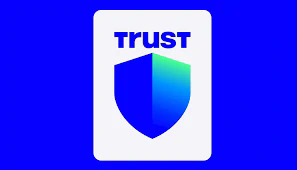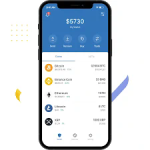Understanding Trust Wallet Scams: A Comprehensive Analysis
## Introduction
In recent years, with the rise of cryptocurrencies and decentralized finance (DeFi), digital wallets have become essential tools for managing and trading digital assets. Trust Wallet is one such wallet that has gained popularity due to its user-friendly interface, robust security features, and support for various cryptocurrencies. However, as with any popular platform, Trust Wallet has become a target for scammers. Understanding Trust Wallet scams is critical for safeguarding your assets and ensuring a secure experience in the cryptocurrency ecosystem.
## 1. What is Trust Wallet?
Trust Wallet is a decentralized mobile wallet designed for storing, trading, and managing various cryptocurrencies and tokens. Acquired by Binance in 2018, Trust Wallet supports more than 160 million assets, including Ethereum and its ERC-20 tokens, Binance Smart Chain tokens, and many others. Its features include:
– **Private and Secure**: Trust Wallet allows users to maintain full control of their private keys, ensuring that only the wallet owner has access to their funds.
– **User-Friendly Interface**: The application is designed to be straightforward, facilitating easy navigation for both novices and experienced users.
– **DApps Browser**: Trust Wallet integrates a DApps (decentralized applications) browser, allowing users to interact with different platforms directly from the wallet.
– **Multi-Currency Support**: Users can store various cryptocurrencies in one place, which is particularly beneficial for those engaged in multiple blockchain ecosystems.
Despite its advantages, the popularity of Trust Wallet has made it a target for scams, where users may find themselves losing access to their funds due to malicious actors exploiting vulnerabilities in user behavior and technological gaps.
## 2. Common Types of Trust Wallet Scams
Understanding the types of scams targeting Trust Wallet users is crucial in preventing financial loss. Below are some prevalent forms of scams in this space:

### 2.1 Phishing Scams
Phishing scams are among the most frequent methods used to steal user credentials or private keys. Scammers often create fake websites or social media pages that impersonate Trust Wallet or any affiliated service.
– **Fake Websites**: A common tactic involves creating a website that looks identical to Trust Wallet’s official site. Users may unknowingly input their recovery phrases or private keys, giving the scammers access to their funds.
– **Email Phishing**: Users might receive emails that appear to be from Trust Wallet, asking for account verification and providing a link to a fake site.
### 2.2 Fake Tokens and Investments
Scammers may promote non-existent projects or tokens, urging Trust Wallet users to invest in them.
– **Pump and Dump Schemes**: Scammers often pitch low-market-cap tokens, manipulating the price and encouraging users to buy in. Once prices soar, the scammers sell their holdings, leaving investors with worthless tokens.
– **Fake Airdrop Schemes**: Users are lured into providing personal information or making small deposits to receive free tokens or bonuses that never materialize.
### 2.3 Impersonation Scams
Scammers may pose as customer support representatives from Trust Wallet, attempting to extract sensitive information from users.
– **Social Media Impersonation**: Scammers recreate Trust Wallet support accounts on platforms like Twitter or Telegram. They then offer fake assistance in exchange for personal details or funds.
– **Direct Messaging**: Scammers may reach out directly via social media, offering help and convincing users to share their private keys under the guise of “account recovery.”
## 3. Warning Signs of Trust Wallet Scams
To avoid falling victim to scams, it is crucial to recognize red flags. Some warning signs include:
### 3.1 Unsolicited Messages
Receiving unsolicited messages from strangers claiming to represent Trust Wallet should raise suspicion. Authentic customer support will never contact users unexpectedly.
### 3.2 Promises of Guaranteed Returns
Investment opportunities promising guaranteed returns or “too good to be true” deals are often scams. Real investments carry risks, and any promise of high returns with no risk is likely fraudulent.
### 3.3 Requests for Private Information
Trust Wallet will never request your private keys, seed phrases, or passwords. If someone asks for this information, it is a scam.
### 3.4 Pressure Tactics
Scammers often use high-pressure tactics to prompt quick decisions. If you feel rushed to make a decision, it is likely a red flag.
## 4. Tips for Protecting Yourself Against Trust Wallet Scams
Scams can be tough to navigate, but there are steps you can take to protect yourself:
### 4.1 Enable Two-Factor Authentication (2FA)
Where applicable, always enable 2FA on your accounts. While Trust Wallet primarily relies on private keys, utilizing 2FA on linked services can add an extra layer of security.
### 4.2 Verify URLs and Email Addresses
Always double-check the URL when logging into your Trust Wallet account. Use bookmarks for official sites, and be wary of altered links. Similarly, verify email addresses before responding to requests.
### 4.3 Use Trusted Sources for Information
Stay informed through official channels such as Trust Wallet’s website, social media, and reputable news sources in the cryptocurrency space. Be cautious about information from unofficial channels.
### 4.4 Practice Responsible Internet Use
Avoid clicking on links in unsolicited emails or direct messages. Always type the web address directly into your browser and navigate from there.
### 4.5 Educate Yourself
Stay updated on the latest scams and fraud tactics within the cryptocurrency space. Knowledge is your best defense against scams.
## 5. How to Report Scams
If you encounter a scam related to Trust Wallet, it is essential to report it.
### 5.1 Reporting to Trust Wallet
You can report phishing attempts or scams by contacting Trust Wallet through their official support channels found on their website or app.

### 5.2 Reporting to Authorities
If you’ve fallen victim to a scam, report it to local authorities and relevant organizations. In some countries, there are specific agencies focused on cybercrime that can assist in investigations.
### 5.3 Community Awareness
Share your experiences with the community to help raise awareness and prevent others from falling victim to the same scams.
## 6. Conclusion
Trust Wallet is a powerful tool for managing cryptocurrency assets, but it is not immune to scams. The proliferation of fraudulent schemes aimed at Trust Wallet users illustrates the need for vigilance and education. By understanding the various scams, recognizing red flags, and taking proactive measures to secure your assets, you can significantly lower the risk of becoming a victim. As the digital finance landscape continues to evolve, staying informed is your best strategy in navigating the complexities of cryptocurrency safely.


